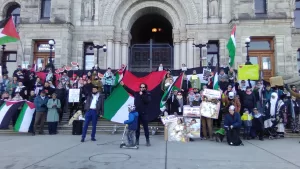Homelessness Counts: A Community Forum in Victoria
Have a look at how our government constructively ignores advocates and victims of the homelessness crisis with yet another study no decision maker will read, asking for feedback none of them will listen to.
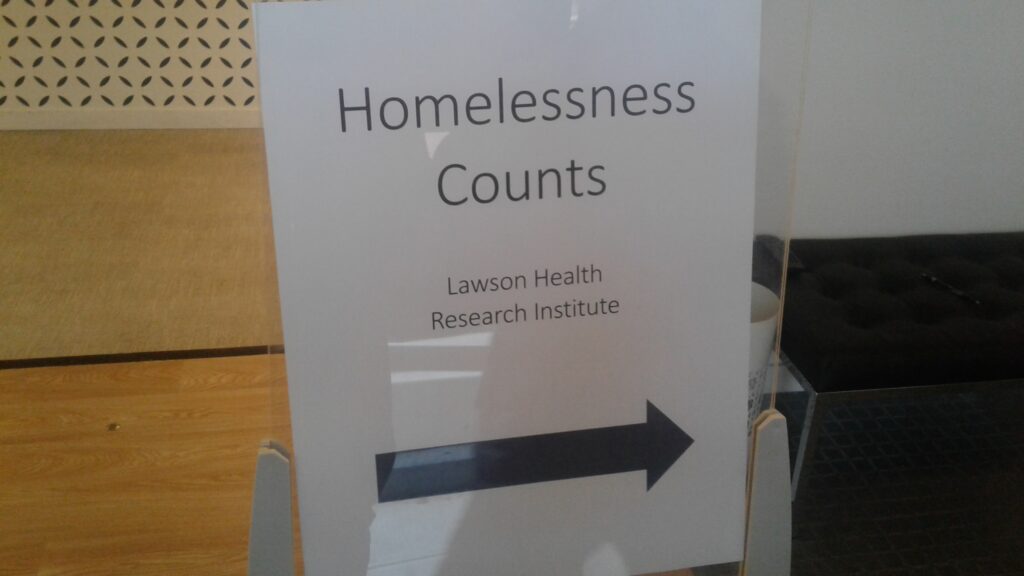
I attended a homelessness community forum organised by the Lawson Health Research Institute, which invited people who had either experienced homelessness or were providing services to the homeless population, announcing preliminary results to a study titled “Homelessness Counts” and asking for feedback from the community.
We were about fifty participants at peak attendance. I expected us to be constructively ignored by the government, so I wasn’t disappointed when my expectations materialised. The study was founded in part by the federal government, but none of their numbers attended. Our local MLA and Minister of State for Child Care Grace Lore dropped by early on for a complimentary speech, but left shortly afterwards. No one from the government cares, it’s all just for show.
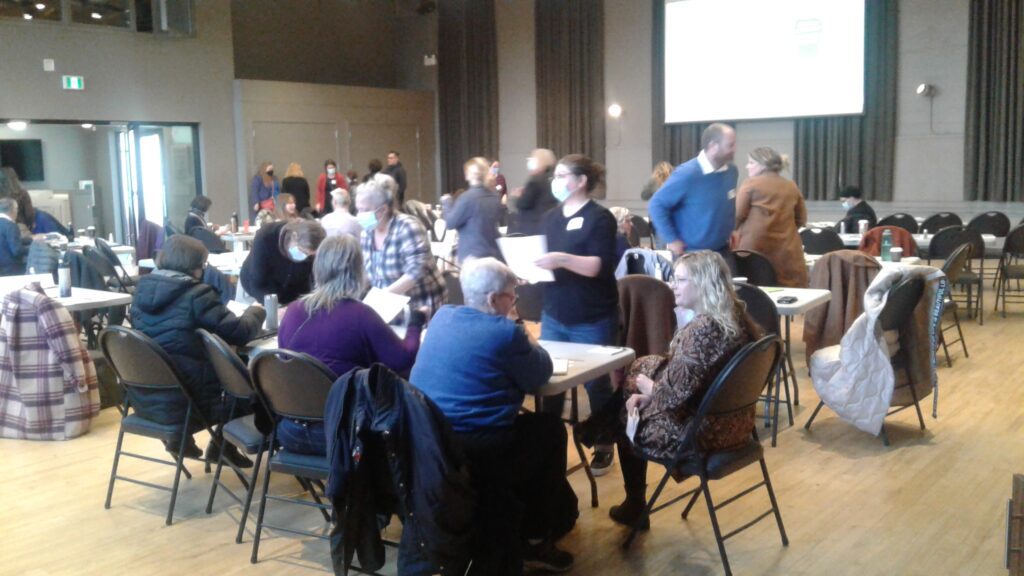
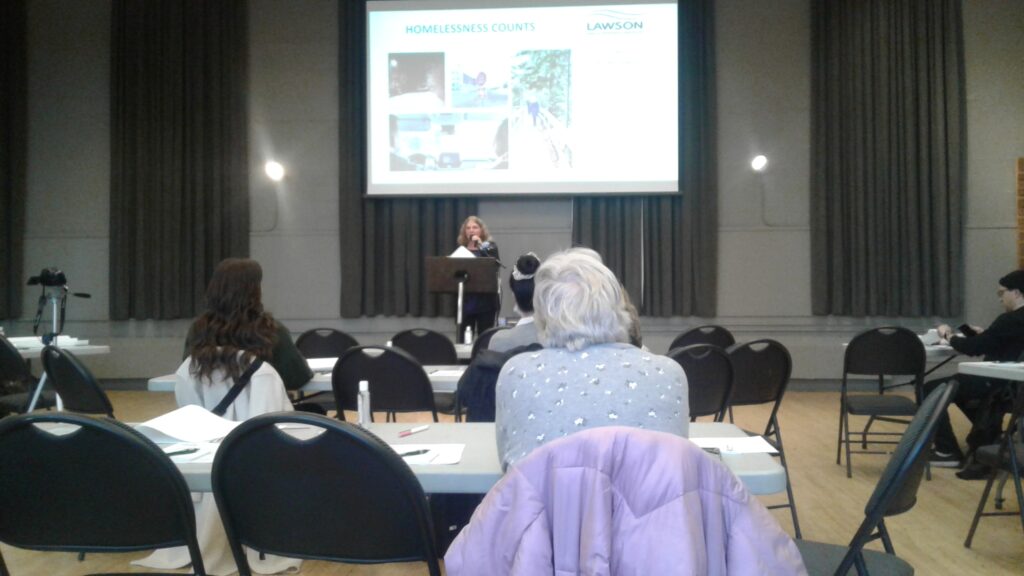
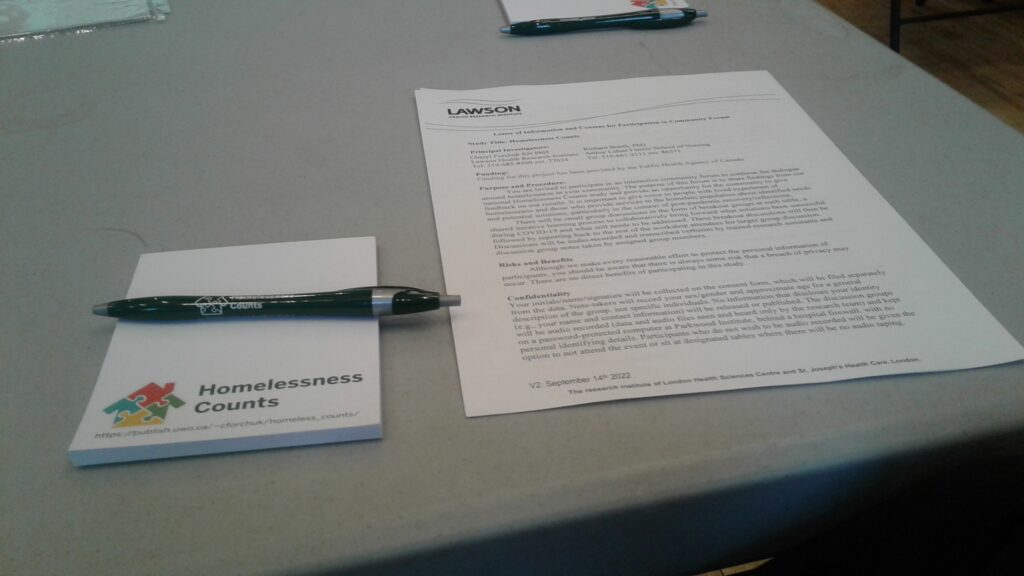
The study in question was primarily about demographics. It first challenges the notion that floating estimates of roughly 235’000 homeless people across Canada are an accurate reporting of the actual number, and I have to agree this far. It is practically impossible to have an accurate count of homeless populations, if only because these people often either fail to integrate the system or eschew it completely.
One predictable conclusion of the study was that the word ‘indigenous’ in particular systematically inflated every relevant figure, and thus stood out at an obvious predictor of whatever plight afflicts the homeless population. While I agree, I find it lamentable that taxpayer dollars were spent to reach such an obvious conclusion.
What I find more rankling, though, is the pervasive obsession of bureaucrats with dehumanising statistics, and this initiative exemplifies the problem. My impression after watching the presentation was that the powers that be genuinely believed the secret to managing homelessness was somehow to hire computer scientists and statisticians to track down to the last homeless person in this country, under the misguided impression that finding all the invisible homeless with an algorithm is the key to solving the problem, even if that means investing in machine learning to scour every available database in search of suspicious patterns, in a chilling parallel with predictive policing.
It looks to me that in doing so, the organisers somehow managed to miss their own point. The homeless, especially those living rough on the streets, may go to any lengths to avoid standing out, both because the system is largely the source of their plight and because those who presume to either help them or rule them systematically make things worse; in other words, standing out means trouble, sometimes even incarceration, involuntary commitment, and even death. I’ve ranted at length in a previous article about how toxic this condescending attitude can be.
The organisers then asked the participants for feedback pertaining to the data, and while the former were manifestly trying to keep the conversation on demographics, the latter were insistently steering it toward human rights—saving me the trouble of crashing the party myself. Countless issues pertaining to discrimination and systemic abuse across all sectors of society and demographic groups were brought forward as examples of why tracking down the homeless for the purpose of integrating them was both vain and pointless. There is no addressing homelessness while so many issues are being stigmatised and so many groups disenfranchised, often by the very people who presume to help them.
Of course residential schools and boarding homes come to mind as examples of problems being portrayed as solutions. So is the government’s relentless persecution of sex workers, racism in the child care system, law enforcement treating the homeless like vermin, the government’s stubborn inaction in the opioid epidemic and its botched handling of the COVID pandemic, the police performing welfare checks, the government’s downsizing of the health care system, purposeful barriers to relief through the judicial system, and so on. That’s how we ended up with the Downtown Eastside Vancouver meltdown; with paternalising government officials trying to manage problems with ideology and data instead of empathy and common sense.
I don’t think anyone among us participants expected our voice would be heard, but we were able to vent some anger among ourselves while observers pretended to listen and matter. At least I was able to chat with like-minded activists, so I don’t quite feel like I’ve wasted my time.
Speaking of which, there was also mention of the upcoming point-in-time count on March 8, performed by the Community Social Planning Council, which is currently looking for volunteers to survey the homeless population in the greater Victoria area; I applied, even though I think it’s yet another irrelevant demographic survey, because some good might likewise come out of it in a manner the organisers did not intend. Who knows, maybe I’ll learn something useful meeting the subjects in person instead of looking at them through the cold lens of Microsoft Excel like they do.
Discover more from Rulebreakers
Subscribe to get the latest posts sent to your email.



